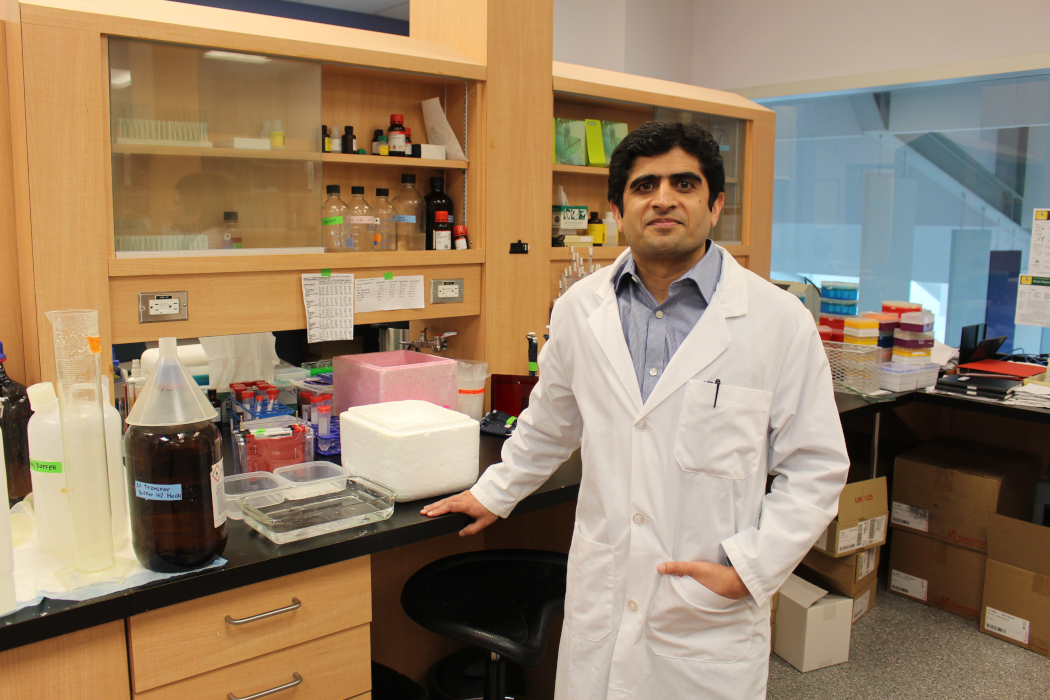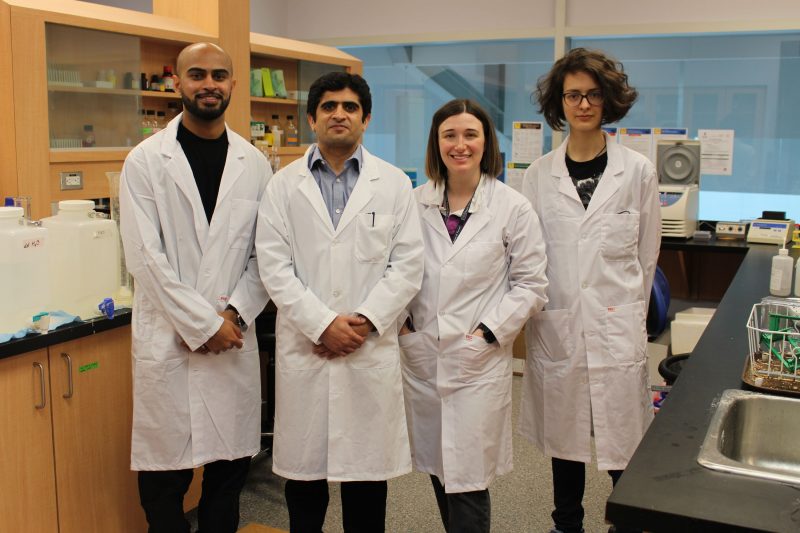
Dr. Tanveer Sharif
UM scientist develops innovative strategy to combat childhood brain cancer
A discovery made by a University of Manitoba researcher could lead to safer and more effective treatments for childhood brain cancer.
Dr. Tanveer Sharif, assistant professor of pathology at the Max Rady College of Medicine, Rady Faculty of Health Sciences, is studying a childhood brain cancer called Group 3 medulloblastoma and he’s developed an approach to target cancer cells using precision medicine.
“Brain tumours are the leading cause of cancer-related death in people under the age of 20 and medulloblastoma is the most common childhood brain malignancy,” said Sharif, who is a Canadian Cancer Society Emerging Scholar. “Current treatment options for this deadly cancer are very toxic and haven’t changed much over the last 20 years. For patients who do survive, they suffer from long-lasting side effects linked to chemotherapy and radiation treatments. There is an urgent need to have a safer therapeutic strategy for medulloblastoma.”
Sharif’s findings were published today in Nature Communications, and his research is supported by the Canadian Institutes of Health Research.

Dr. Tanveer Sharif (second from left) and his graduate students (from left to right) Harshal Senthil, master’s, Emma Martell, PhD, and Helgi Kuzmychova, master’s.
Sharif worked to target molecules unique to cancer cells that won’t harm healthy tissues like other cancer treatments do.
The molecules he targeted are called oncogenes, which are abnormally activated in cancers that promote uncontrolled, rapid growth of tumour cells. The oncogene he focused on is MYC, which is overexpressed in about 70 per cent of all human tumours.
While MYC is an attractive target for cancer therapy, Sharif said many technical and biological limitations prevent it from being used as a target for cancer therapy. However, he discovered that metabolism plays an important role in helping maintain the high expression of MYC in medulloblastoma tumour cells.
“We found that metabolism is like a shield and is protecting this oncogene MYC protein from degradation in cancer cells,” Sharif said. “Using this knowledge, we propose a new and unconventional strategy that uses metabolism-targeting agents to suppress oncogenic MYC expression.”
Sharif said this is exciting because it’s an out-of-the-box strategy to indirectly target this protein only in the cells where it’s over expressed.
“We truly believe these findings have the potential to be used one day in the clinic to treat medulloblastoma,” Sharif said.
Dr. Peter Nickerson, vice-provost (health sciences), dean, Max Rady College of Medicine, and dean, Rady Faculty of Health Sciences, said he is thrilled about Sharif’s discovery.
“Congratulations to Dr. Sharif and his team on this innovative finding,” Nickerson said. “This protein is present in other cancers, such as ovarian and breast cancers. Dr. Sharif’s approach could have broad therapeutic implications for treating other MYC-driven tumours across the cancer spectrum.”
Sharif and his team plan to continue to advance this research to better understand the role metabolism plays in protecting the MYC protein.






